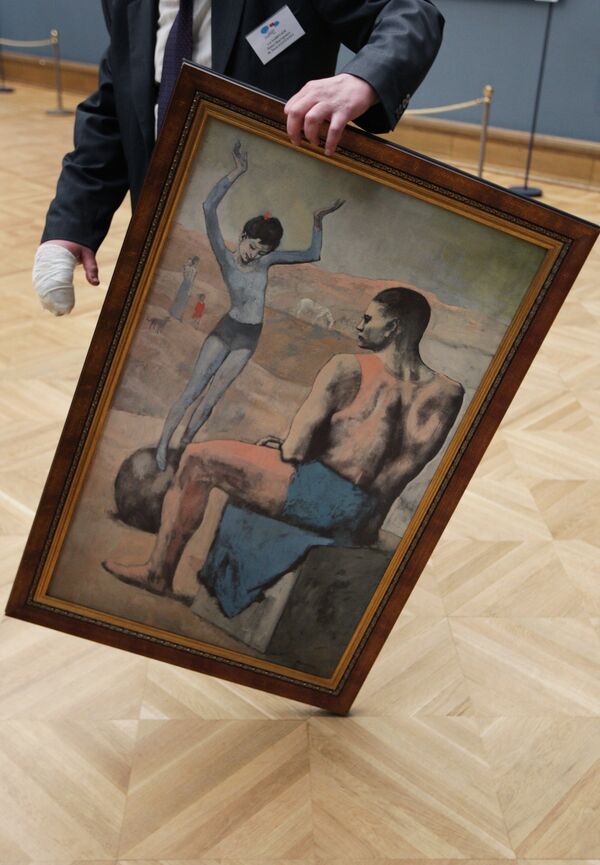An unprecedented three-month exhibition of more than 200 Pablo Picasso's masterpieces opened at the Pushkin State Museum of Fine Arts in Moscow on Thursday.
The exhibition, intended to show to the Russian public the whole scope of Picasso's work, is the first of its kind since 1956, when around 40 his paintings were brought to Moscow in a show seen by many as one of first windows in the Iron Curtain.
Picasso's works were shunned by the Soviet leadership until the mid-1950s for their striking contradiction to the norms of Socialist realism.
"I paint objects as I think them, not as I see them," Picasso said in explaining his art, and although the Khrushchev Thaw provided the chance to bring his works to Moscow, the exhibit shocked many Soviet visitors.
The new exhibition is the biggest ever display of Picasso's works in Russia, taking advantage of the Year of France in Russia to combine the Pushkin Museum's collection with an extensive selection from the Picasso Museum in Paris, which is closed for renovations.
"Here it is possible to see the whole Picasso, from A to Z," Pushkin Museum director Irina Antonova said.
The 240 works on display, as well as additional materials, attempt to tell the story of Picasso's life, including his strong ties to Russia and Russian cultural figures, such as Sergey Diaghilev, Igor Stravinsky and Leonid Myasin.
While he was working on designs for Diaghilev's Ballets Russes he met the ballet dancer Olga Khokhlova, who later became his wife and gave him a son, Paulo. Picasso and Khokhlova separated but remained legally married until Khokhlova's death in 1955.
Picasso's Russian connection is featured in a special section of paintings, sketches, photos and designs for Diaghilev's ballets.
However, missing from the masterpieces showcased this time is Picasso's famous Dove of Peace, designed for the international peace congress in Paris in 1949, when the artist was a communist.
The Dove of Peace became one of the most recognized symbols of peace worldwide, and was particularly popular with people in the Soviet bloc.
MOSCOW, February 25 (RIA Novosti, Ekaterina Chernyaeva)


